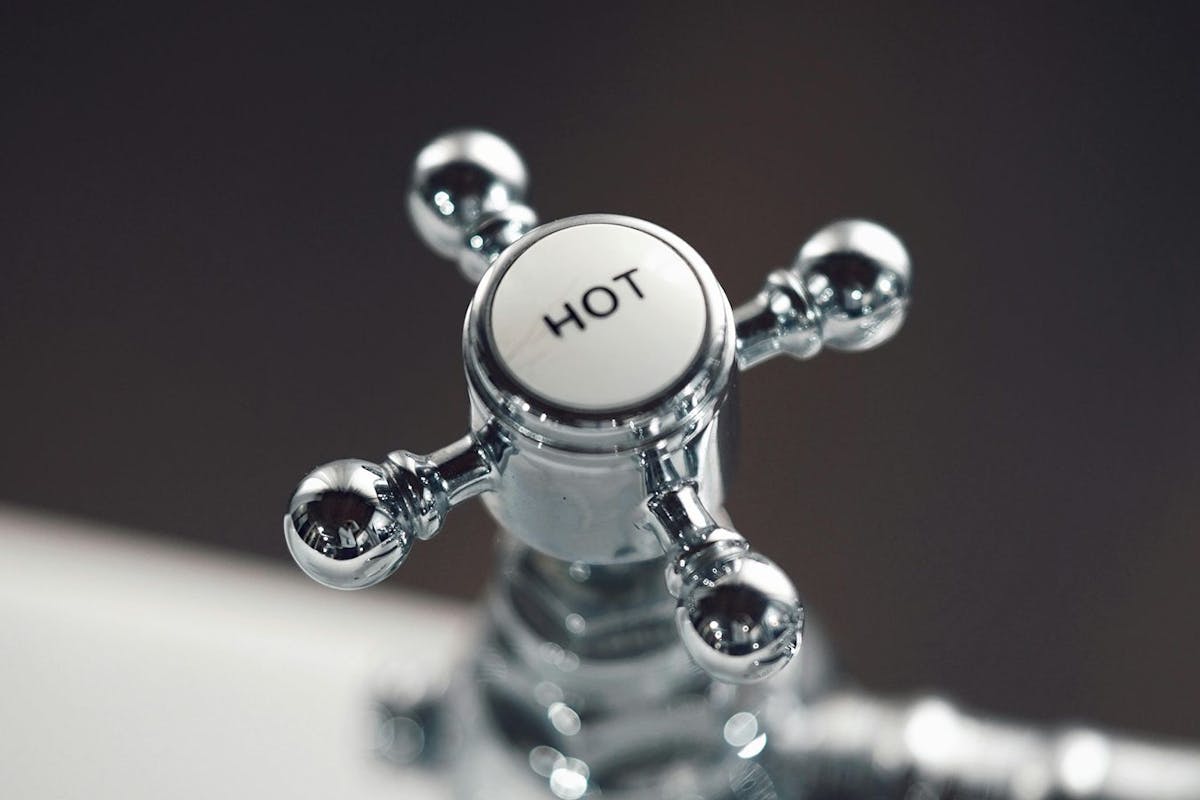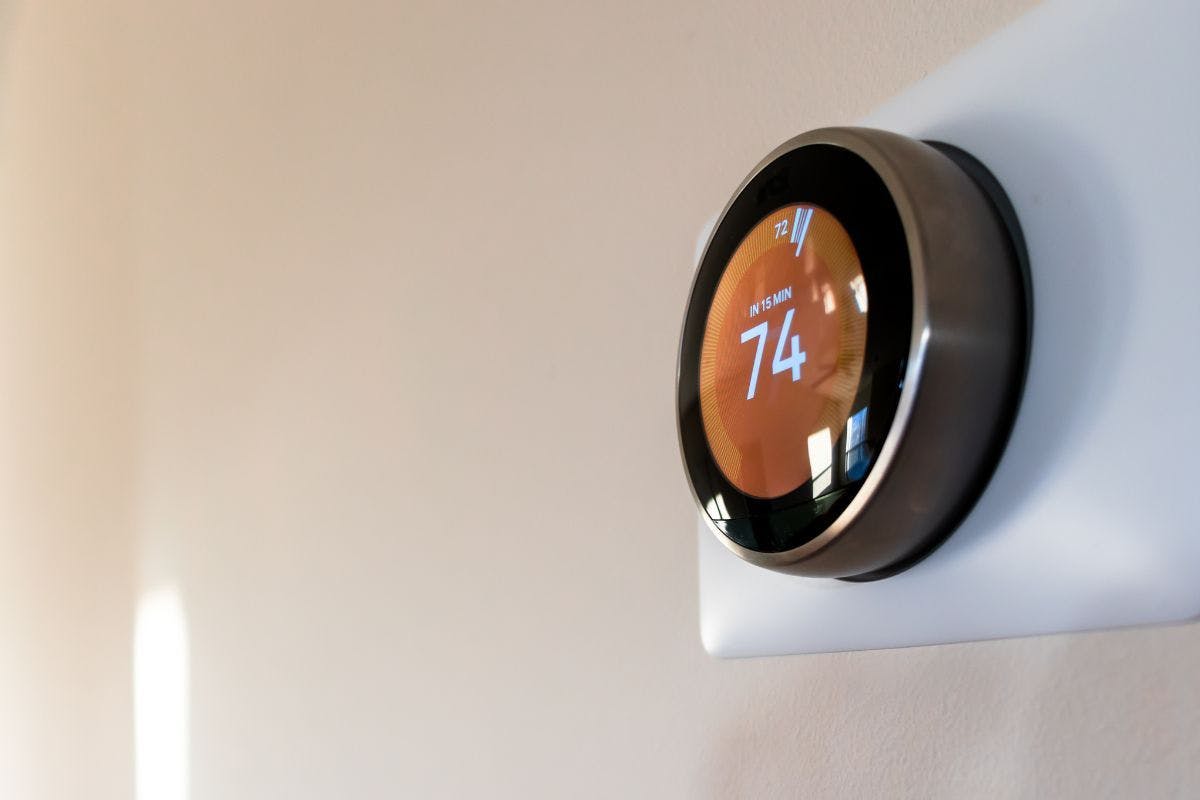Electric vs. Gas Tankless Water Heater
Last edited

Author
Andrew Giermak
Solar and Electrification Writer and Editor

Editor
Andrew Blok
Electrification and Solar Writer and Editor

Is it time, out of necessity or choosing to upgrade, to replace your old conventional water heater? If so, you may compare electric tankless water heaters and gas tankless water heaters. Tankless or on-demand water heaters have greater efficiency and can give you 20 years or more of savings.
The choice between an electric or gas tankless water heater depends on your household size, local energy rates, your budget, and installation specifics. Knowing the differences in cost, installation requirements, flow rate, and maintenance are key to finding the best fit for your home.
See how much you can save with home energy changes
How Tankless Water Heaters Work
Tankless water heaters are also known as on-demand water heaters as they heat water when you turn on the hot water tap and don’t keep any hot water in stand-by in a tank. Tankless water heaters can be gas or electric.
When the hot water tap is turned on, the water flow triggers a gas burner or electric coil to heat the water almost instantly as it passes through a heat exchanger. The unit immediately shuts off when you shut off the faucet.
A tankless water heater delivers hot water with excellent energy efficiency and no energy wasted as there’s no need for constant stand-by heat. Some users see long-term savings. Installation costs are typically higher with a tankless unit compared to a standard tank water heater. Tankless water heaters have a longer expected lifespan, 20 years or longer, than a tank system and maintenance needs are usually low and inexpensive.
Gas vs. Electric Tankless Water Heaters
Gas tankless water heaters are generally more expensive than their electric relatives or conventional tanked water heaters. Gas tankless systems have a higher flow rate, so may be a better fit when you need more hot water for more fixtures.
At the same time electric tankless water heaters are becoming a good fit for a growing number of homes and properties. Depending on factors such as energy rates, if you’ve gone solar, and your family’s needs, electric tankless units may be the best in energy and cost efficiency. Which is right for your home? Here’s a look at the main considerations and factors.
See how much you can save with home energy changes
Purchase and installation cost
A gas tankless water heater is generally more expensive than an electric tankless water heater. Both are typically costlier than standard tank water heaters.
Installation of a gas tankless model requires a gas line and safe, professional gas venting, which adds to the expense. Unlike a gas model, an electric tankless water heater doesn’t need venting, and therefore can be installed in more locations with more flexibility. An electric unit may need additional electric work, such as a higher-amp circuit, and this may increase cost.
Efficiency
Electric tankless water heaters are about 99% energy efficient at their best. An electric model may make more sense where electric rates are lower than gas rates or in conjunction with home solar power.
Gas tankless water heaters have 80-96% energy efficiency. Gas can have higher heating performance, or heating power, than electric units. This can be more beneficial in colder climates and, along with a higher flow rate, may mean a gas tankless unit can supply more fixtures simultaneously than electric, reducing the likelihood of needing multiple tankless water heaters.
Flow rate
While electric tankless water heaters can produce limitless hot water, an electric tankless water heater’s flow rate is generally less than that of a conventional water heater or gas tankless water heater. If you have too many fixtures using hot water at the same time, it could decrease the temperature of the hot water as the flow rate can’t keep up. This may mean larger homes or homes with multiple people often needing hot water at the same time need multiple units.
Gas tankless water heaters have a higher flow rate than electric counterparts. You’re less likely to need multiple gas units in a larger home or a home with frequent simultaneous hot water needs.
Safety/venting
Any electrical, plumbing, or gas work should be done by a professional.
Gas models need venting to safely exhaust fumes like carbon monoxide. This may affect where you can install a gas tankless water heater to comply with safety and building codes.
Maintenance
Both gas and electric models may need descaling to remove hard water mineral buildups about once a year, or more often depending on your local water. Both have filters which should be checked and cleaned as often as recommended by the manufacturer.
Gas tankless water heaters need a professional inspection of the venting, burner, and ignition system once a year.
| Gas | Electric | |
|---|---|---|
| Purchase and installation cost | Usually higher, unless you need one gas unit instead of multiple electric tankless units | Generally higher than conventional tank water heaters, lower than gas tankless water heaters |
| Efficiency | 80-96% energy efficiency | 99% energy efficiency |
| Flow rate | Higher | Lower |
| Safety and venting | Needs venting, some extra maintenance/inspections | No venting |
| Maintenance | Annual descaling, filter cleaning, annual professional inspections | Annual descaling, filter cleaning |
Water Heating Efficiency, and More Ways to Save
Tankless water heaters provide proven energy efficiency compared to conventional tank water heaters. Saving energy means saving money each month on your utility bills.
Data from the Department of Energy shows tankless water heaters are about 24-34% more energy efficient than conventional tank units in low-to-normal water usage homes, which use 41 gallons or less per day. Tankless water heaters are 8-14% more efficient than tank water heaters in high-usage homes, up to 86 gallons a day.
Tankless water heaters also last longer, with life expectancies of about 20 years or longer.
You can see more ways to save energy and save money in your home using the Palmetto app. For more on home electrification and how to save energy at home, check out Palmetto’s Savings Maximizer.
See what home electrification can do for you:
Frequently Asked Questions
Can I run out of hot water with a tankless water heater?
With a tankless water heater you get consistent, continuous hot water. One limitation is the flow rate, which could decrease the temperature of your hot water if too many fixtures are running at the same time.
Will a tankless water heater work for a large home?
The size of the home and how often you’re using hot water on multiple fixtures will determine if you need one or more than one tankless water heaters.
What happens with a tankless water heater during a power outage?
A tankless water heater, gas or electric, will be out during a power outage. Gas units have an electric ignition system.


